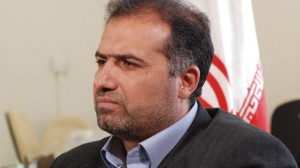 TEHRAN (FNA)- A senior Iranian legislator warned the western powers to show transparent stances in the current talks with Tehran, and adopt positions independent from the Zionist regime�s considerations.
TEHRAN (FNA)- A senior Iranian legislator warned the western powers to show transparent stances in the current talks with Tehran, and adopt positions independent from the Zionist regime�s considerations.�If the western side still wants to pursue issues with a political approach, the previous trend will continue,� member of the parliament�s National Security and Foreign Policy Commission Kazzem Jalali told FNA on Saturday.
Warning that the Zionist regime plays the role of a destroyer in the negotiations between Iran and the world powers, he said, �The westerners should show if the decisions are taken in Tel Aviv or by themselves.�
�We should see if the westerners will take decisions independently during this round (of talks) or they will be influenced by the Qods occupying regime,� Jalali said.
On Thursday and after a round of multilateral talks and several bilateral meetings with the European, Russian, Chinese and US delegations in Geneva, Iran's senior negotiator Seyed Abbas Araqchi told FNA that Iran and the six world powers are likely to draft an agreement in the following days to start resolving their decade-long nuclear standoff.
"We are trying to start compiling the text of an understanding," he said.
"Compiling a written text is a time-consuming, lengthy and hard process and a consensus is needed for each and every word of it," he added.
Until Thursday night, Iranian Foreign Minister Mohammad Javad Zarif and EU Foreign Policy Chief Catherine Ashton, who headed the talks, along with a few experts from the seven parties to the talks were due to meet for a final meeting in Geneva on Friday. But plans suddenly changed today, and French Foreign Affairs Minister Laurent Fabius, US Secretary of State John Kerry, British Foreign Secretary William Hague and German Foreign Minister Guido Westerwelle rushed to Geneva today to join the negotiations. Their unexpected attendance in the talks has fuelled the speculation that an agreement is in the making.
News reports on Saturday said that Russian Foreign Minister Sergei Lavrov is also due to travel to Geneva.
Both Iran and the G5+1 (the US, Russia, China, Britain and France plus Germany) negotiators have declined to reveal the details of the possible deal, which is based on an Iranian proposal offered to the six world powers in the last month meeting in Geneva. But after some western media outlets speculated that a halt to Iran's uranium enrichment activities would be part of the deal, senior Iranian negotiators rejected such reports, saying enrichment is their "redline".
After revelations of an upcoming agreement between Iran and the world powers, Israeli Prime Minister Binyamin Netanyahu warned the six world powers on Thursday to give up their present approach in negotiations with Tehran.
As western diplomats said they have offered Tehran an ease in sanctions in return for Tehran stopping any further advancement in its nuclear enrichment activities, the Israeli premier said Tel Aviv is against an agreement with Iran that stops short of getting it to halt its uranium enrichment.
"Israel understands that there are proposals on the table in Geneva today that would ease the pressure on Iran for concessions that are not concessions at all," he said, during a speech to the Jewish Agency.
By Fars News Agency�
The Iran Project is not responsible for the content of quoted articles.










